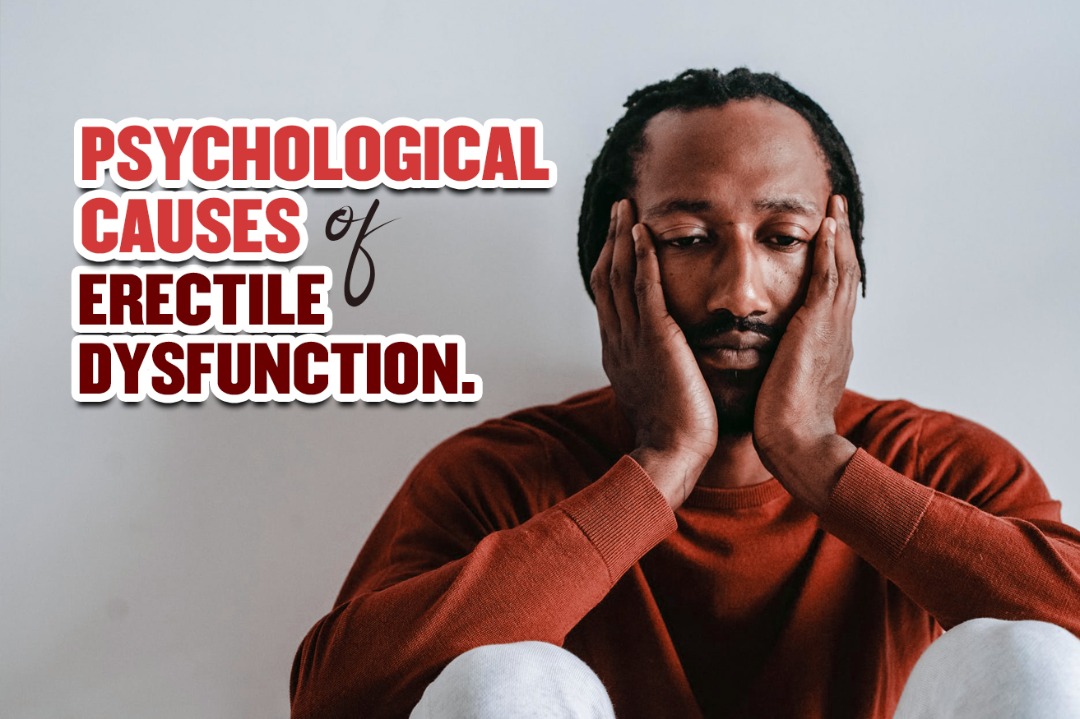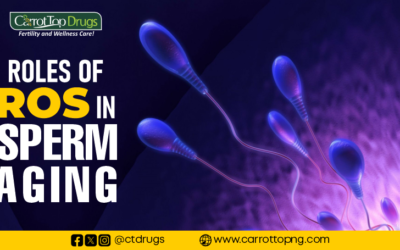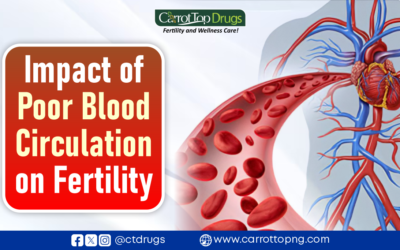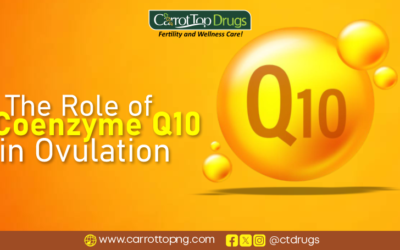Introduction
Erectile dysfunction (ED) is a prevalent condition that affects millions of men worldwide, causing significant distress and impacting their quality of life. While physical factors such as cardiovascular disease and diabetes are well-known contributors to ED, the role of psychological factors cannot be overlooked. Understanding the psychological causes of erectile dysfunction in men is crucial for effective diagnosis and treatment.
Prevalence of Erectile Dysfunction in Men
Erectile dysfunction is a widespread condition, with studies reporting varying prevalence rates depending on age, health status, and geographical location. According to the Massachusetts Male Aging Study, approximately 52% of men aged 40 to 70 experience some degree of erectile dysfunction (Feldman et al., 1994). Moreover, the prevalence of ED tends to increase with age, affecting up to 70% of men over the age of 70 (Feldman et al., 1994). These statistics underscore the significant impact of ED on men’s sexual health and well-being.
Psychological Causes of Erectile Dysfunction in Men
1. Performance Anxiety:
One of the most common psychological causes of erectile dysfunction in men is performance anxiety. Men may experience stress and pressure to perform sexually, leading to feelings of inadequacy and fear of failure. This anxiety can create a vicious cycle where worry about maintaining an erection actually contributes to erectile dysfunction (Goldstein et al., 2017).
2. Depression and Anxiety Disorders:
Depression and anxiety disorders are also psychological causes of erectile dysfunction in men. They are mental health condition s that can significantly impact sexual function, including erectile function. These conditions may alter brain chemistry and hormone levels, affecting libido and the body’s ability to respond sexually. Furthermore, medications used to treat depression and anxiety may also have side effects that contribute to ED.
3. Stress:
High levels of stress, whether related to work, finances, or personal relationships, can interfere with sexual arousal and performance. Chronic stress triggers the release of stress hormones such as cortisol, which can disrupt normal physiological processes involved in achieving and maintaining an erection (Clayton et al., 2016).
4. Relationship Issues:
Difficulties in relationships, such as communication problems, unresolved conflicts, or feelings of resentment, can contribute to erectile dysfunction. Emotional intimacy and trust are essential for a satisfying sexual relationship, and when these aspects are lacking, it can manifest as sexual dysfunction.
5. Low Self-esteem:
Negative self-perception and low self-esteem can undermine a man’s confidence in his sexual abilities, leading to performance anxiety and erectile dysfunction. Men who feel insecure about their appearance, sexual prowess, or masculinity may struggle to engage in sexual activity without fear of judgment or rejection (Laumann et al., 2005).
Effects or Consequences of Erectile Dysfunction in Men
Impact on Self-Esteem:
Erectile dysfunction can significantly affect a man’s self-esteem and confidence. The inability to achieve or maintain an erection may make him feel inadequate or emasculated, leading to feelings of insecurity and diminished self-worth. This can impact various aspects of his life, including work performance, social interactions, and overall sense of well-being.
Strain on Relationships:
Erectile dysfunction can strain intimate relationships, causing tension and resentment between partners. The inability to engage in sexual activity may lead to frustration and dissatisfaction, creating distance and discord in the relationship. Partners may feel unloved or undesired, leading to feelings of rejection and hurt. Communication breakdowns and misunderstandings may occur as a result, further complicating the relationship dynamics.
Emotional Distress:
Men with erectile dysfunction may experience a range of negative emotions, including frustration, embarrassment, and shame. The stigma associated with sexual dysfunction can exacerbate these feelings, leading to social withdrawal and avoidance of sexual intimacy. The fear of being judged or ridiculed by others may prevent men from seeking help or discussing their concerns openly, perpetuating feelings of isolation and loneliness.
Impact on Mental Health:
The psychological burden of erectile dysfunction can have significant implications for mental health. Men may experience symptoms of anxiety and depression as a result of their condition, further exacerbating feelings of hopelessness and despair. The inability to fulfill societal expectations of masculinity and sexual prowess may lead to identity crises and existential questioning, adding to the emotional distress experienced.
Quality of Life:
Ultimately, erectile dysfunction can have a profound impact on a man’s overall quality of life. The inability to engage in sexual activity may lead to a diminished sense of fulfillment and satisfaction, affecting various domains of life, including work, social relationships, and leisure activities. The constant preoccupation with sexual performance and the fear of failure may consume a man’s thoughts, robbing him of joy and spontaneity in everyday life.
Possible Solutions
1. Counseling and Therapy:
Psychological counseling, including cognitive-behavioral therapy (CBT) and sex therapy, can help men address underlying issues contributing to erectile dysfunction. Therapists can provide strategies for managing performance anxiety, improving communication in relationships, and coping with stress and negative emotions.
2. Medication Management:
In cases where depression or anxiety is contributing to erectile dysfunction, medication management may be necessary. Antidepressants and anti-anxiety medications can help alleviate symptoms of these conditions and improve sexual function. However, it’s essential for men to work closely with their healthcare providers to monitor medication side effects and adjust treatment as needed.
3. Lifestyle Modifications:
Adopting a healthy lifestyle can have a positive impact on erectile function. Regular exercise, a balanced diet, adequate sleep, and stress management techniques can help reduce the risk of ED and improve overall sexual health (Esposito et al., 2004). Avoiding excessive alcohol consumption, smoking, and illicit drug use is also important for maintaining erectile function.
4. Communication and Relationship Building:
Open and honest communication with partners is crucial for addressing relationship issues that may contribute to erectile dysfunction. Couples therapy can provide a safe space for couples to express their feelings, resolve conflicts, and strengthen their emotional connection. Building trust and intimacy in the relationship can help alleviate anxiety and improve sexual satisfaction.
5. Medical Treatments and Supplements:
In some cases, medical treatments such as testosterone replacement therapy or vacuum erection devices may be recommended for men with erectile dysfunction. These treatments aim to address underlying physiological factors contributing to ED and can be effective in restoring sexual function (Hatzimouratidis et al., 2016).
Aside from these medical treatments, men could also use supplements such as Evergreen Action for Men helps to boost erection. It is specifically made to prevent premature ejaculation. Aside from Evergreen Action for Men, Evergreen Formular for Men is necessary to optimize men’s fertility. However, it’s essential for men to discuss the potential risks and benefits of these treatments with their healthcare providers.
Conclusion
In conclusion, the psychological causes of erectile dysfunction in men play a significant role in the onset and perpetuation of this condition. Understanding the interplay between psychological factors such as performance anxiety, depression, and relationship issues is essential for effective diagnosis and treatment. Addressing these underlying psychological concerns through counseling, therapy, and open communication can lead to improved outcomes and enhanced overall well-being for men experiencing erectile dysfunction. By acknowledging and addressing the psychological aspects of this condition, healthcare professionals can provide comprehensive care that addresses the root causes and helps men regain confidence and satisfaction in their sexual health.
FAQs
- Q. What are the common psychological causes of erectile dysfunction in men?
- A. Common psychological causes include performance anxiety, depression, stress, relationship issues, and low self-esteem.
- Q. How common is erectile dysfunction related to psychological factors?
- A. Psychological factors contribute to erectile dysfunction in a significant number of cases, alongside physical factors.
- Q. Can erectile dysfunction be solely caused by psychological factors?
- A. Yes, in some cases, erectile dysfunction can be solely attributed to psychological factors, without underlying physical issues.
- Q. What role does therapy play in treating erectile dysfunction with psychological causes?
- A. Therapy, including cognitive-behavioral therapy (CBT) and sex therapy, can help men address underlying psychological issues contributing to erectile dysfunction.
- Q. Is medication effective in treating erectile dysfunction caused by psychological factors?
- A. While medication may be prescribed to manage symptoms such as anxiety or depression, addressing the root psychological causes often requires therapy or counseling.
- Q. Can relationship counseling help improve erectile dysfunction?
- A. Yes, relationship counseling can address communication issues and emotional barriers that may contribute to erectile dysfunction, improving overall relationship satisfaction.
- Q. Are lifestyle changes beneficial for men with erectile dysfunction related to psychological factors?
- A. Yes, adopting a healthy lifestyle, including regular exercise, stress management, and open communication, can help alleviate psychological stressors and improve erectile function.

















